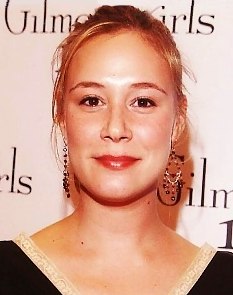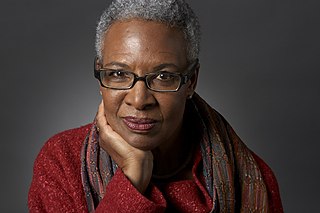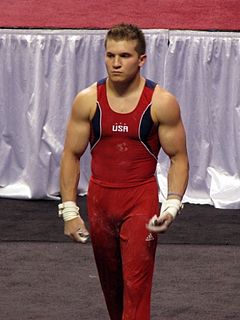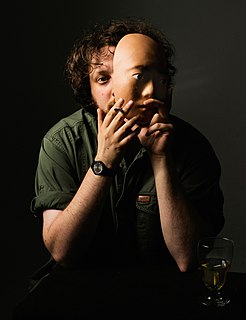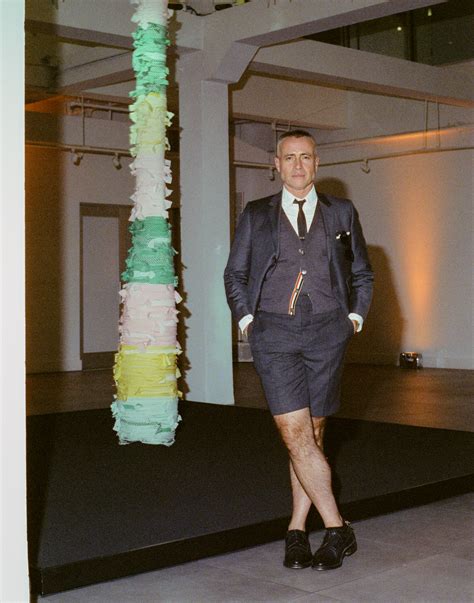A Quote by Liza Weil
I think I can get a little passionate about things that I believe in and maybe that can be a little intense for people. And I think a lot of that stuff comes out of the need of wanting to belong, and being insecure and uncomfortable.
Related Quotes
I'm no perfect gymnast. I want to go out and eat junk food, or I maybe don't sleep as much as I should, or some days I'll leave the gym and think, "Maybe I should have worked a little harder. Maybe I'm not as tired as I need to be." Every day you push a little harder, eat a little better, maybe go to bed a little earlier.
I think all of us set out to try and reach as many people. That's the whole point of being in a band: trying to get your music out there. So, any opportunity to do that, within reason. We're informed about where our music is going to be used; we get to say yes or no. There are things we can turn down, and there are things we can agree to. When it comes to movies and stuff like that, it's great for us. I don't think it's selling out. Maybe 10 or 20 years ago it was seen as selling out, but nowadays I think it's the only way to get your music out there.
I think the more you have a generalist perspective, I think sometimes the more you can kind of see through the forest and the trees. And when it gets a little bit cloudy, you know, have some sense of, "Well, maybe this might happen or maybe that might happen." So I really am a big believer in liberal arts education. I think it's better - particularly in these kind of uncertain times - to know a little bit about a lot of things as opposed to being expert in one thing.
What I think is important about essayists, about the essay as opposed to a lot of personal writing is that the material has to be presented in a processed way. I'm just not interested in writing, "Hey, this is what happened to me today." You get to a place that has very little to do with your personal experience and talks about some larger idea or something in the culture. I don't think you can get to that unless you have had a lot of time to gestate and maybe if I was taking a lot of notes while stuff was going on, I wouldn't be able to get to that place as easily.
I think it's really easy for people to point out hypocrisy in people's lives. It's like yeah, I get on planes a lot, and I drank from a plastic water bottle today - you know what I'm saying? A lot of people would just be like, "Oh, you're a hypocrite. You live in an ecovillage for a month, and then you fly around the world to talk about a movie." Don't think that I don't think about those things! Don't think that that's not, like, a quandary in my life. It can be a pretty intense ethical dilemma. I think it's about figuring out, you know, navigating life.
I think, if you can only talk about your stuff in a jargonistic way, you're not as smart as you think. You're alienating people who deserve to have a conversation, or a place in the conversation. If you take the complete inverse and are staunchly anti-intellectual, then I think there's a certain amount of resentfulness in that. There's something about that standpoint that feels a little bit insecure.
I think it comes down to the type of personality that the performing arts seem to attract. And that's outgoing, very sensitive - sometimes incredibly insecure - people, that for some reason need a lot of validation. They have a lot that they have to get out, and they choose one of the hardest professions in the world in which to exist, being as sensitive as you need to be.
As I sat down, though, I realized that you can get used to certain luxuries that you start to think they're necessities, but when you have to forgo them, you come to see that you don't need them after all. There was a big difference between needing things and wanting things--though a lot of people had trouble telling the two apart--and at the ranch, I could see, we have pretty much everything we'd need but precious little else.
I think the answer is we all need a little help, and the coffee's a little help with everything — social, energy, don't know what to do next, don't know how to start my day, don't know how to get through this afternoon, don't know how to stay alert. We want to do a lot of stuff; we're not in great shape. We didn't get a good night's sleep. We're a little depressed. Coffee solves all these problems in one delightful little cup.
As a designer, I'm supposed to be provoking people's reactions, and getting people to see things differently. I think more of us should be doing this. Because yeah, maybe guys are not gonna want to wear my stuff, but they'll think that they can maybe wear something a little bit more than what they've been wearing. That's the only way things move forward.
I certainly do believe that a lot of comedy comes from awkwardness and embarrassment - pointing out the ways things are uncomfortable. Definitely the stuff that interests me. I don't necessarily think that comedy comes from a dark place, like you have to be a strung-out heroin addict. But I don't think it comes from happiness, that's for sure. It comes from frustration and suppressed rage, and wishing the world were different.
I think some people need the assurance of people around them and ideas worked out in advance. I think it keeps me an edge that to be creative on the spot. You have to think of things to do when you meet people. You limit your choices from the beginning. So I don't bring a lot of lenses, cameras, all these elements that can help the picture to a shooting. You confine yourself to, say, one room and you just make it work. You become very creative in that little space. You have left a lot of other options out of the game.
I think when you're really passionate about something, and maybe not every person is like this, but I think there's a large group that feels deep inside, I want something different, I want something more, I want to go on my own path. It's being comfortable being uncomfortable. Because to do that, you're going to have to jump outside of the comfort zone and it isn't going to be perfect. It's going to be scary. And to me, that's when great things happen.
